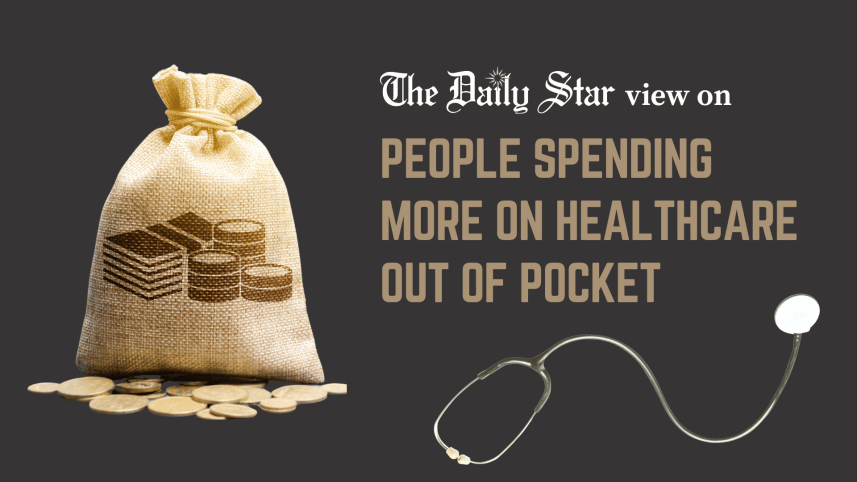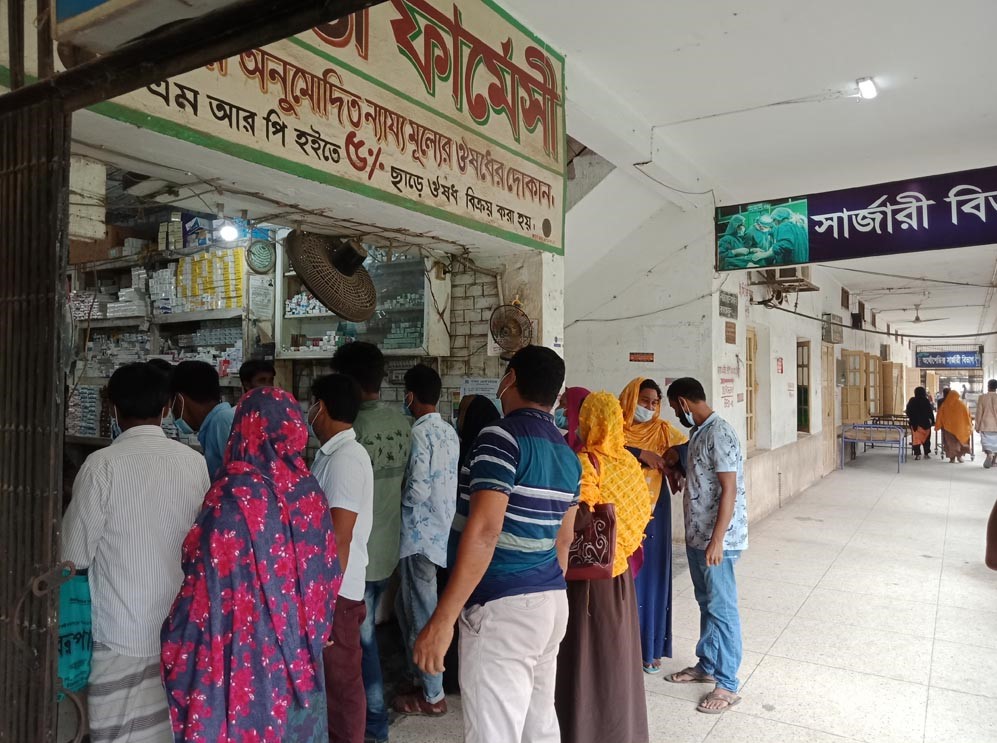People are paying through their noses for essential healthcare

In a country where a large segment of the population lives below the poverty line, public healthcare should have been a top priority for the government. Instead, an analysis by this daily shows that the healthcare budget has been decreasing as a percentage of the total budget since 2010. This has resulted in people spending more on healthcare out of their own pockets. So much so that Bangladesh has the second highest out-of-pocket (OOP) expenditure on health in the world, which is really concerning. Moreover, people are not even getting desired services despite spending considerable sums of money. Rather, those who can afford it often go for treatment abroad, draining our precious forex reserves.
The sorry state of the healthcare budget is not just limited to falling numbers. Corruption and irregularities in the sector, along with poor planning and execution of the budget, also add to the burden of costs on people. According to our report, a large portion of the healthcare allocation is actually spent on the salaries and perks of government officials as well as other regular expenditures, which does little to help the public. The saddest part is, while they are paying through their noses, a portion of the allocated money remains underutilised on a regular basis. This led to a reduction in the development budget for health by 25.53 percent—from Tk 16,204 crore to Tk 12,066 crore—in FY2023-24.
Considering the poor state of budget, budget implementation, and health services, it is imperative that the government finds innovative ways of financing and overhauling the health system with consultations from experts. The focus needs to shift from curative to preventive care, reducing our overdependence on medicine, which makes up the main portion of our OPP health expenditure. Similarly, irregularities such as the mushrooming of unlicensed medical facilities must be stopped. We also must root out corruption in medical recruitment and procurement in public sector, which would help save money from the relatively meagre allocation this sector receives. All this will require astute leadership which the health ministry must be able to deliver.



 For all latest news, follow The Daily Star's Google News channel.
For all latest news, follow The Daily Star's Google News channel. 

Comments